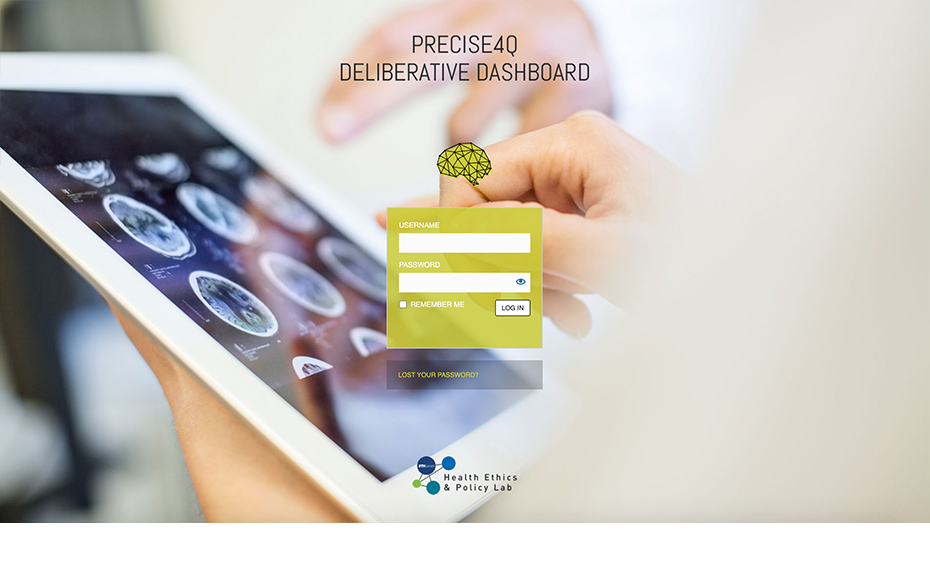Tools
We translate research findings into tools for students, academics, and policymakers.
The ETHics Resource Platform (ETHicsRP)
The ETH Ethics Resource Platform (ETHicsRP) is an evolving collection of tools, resources and online courses, aimed at students and teachers, which facilitates and innovates ethics education at ETH Zurich. Initiated by the Rector and implemented by the Health Ethics and Policy Lab, D-HEST, the website contains a collection of ethics case studies relating to the broad spectrum of the ETH domain. Visitors can navigate the content by working with the case studies and the related information. For example, visitors can search for specific ethics guidelines or a regulation that is relevant to their field of research.
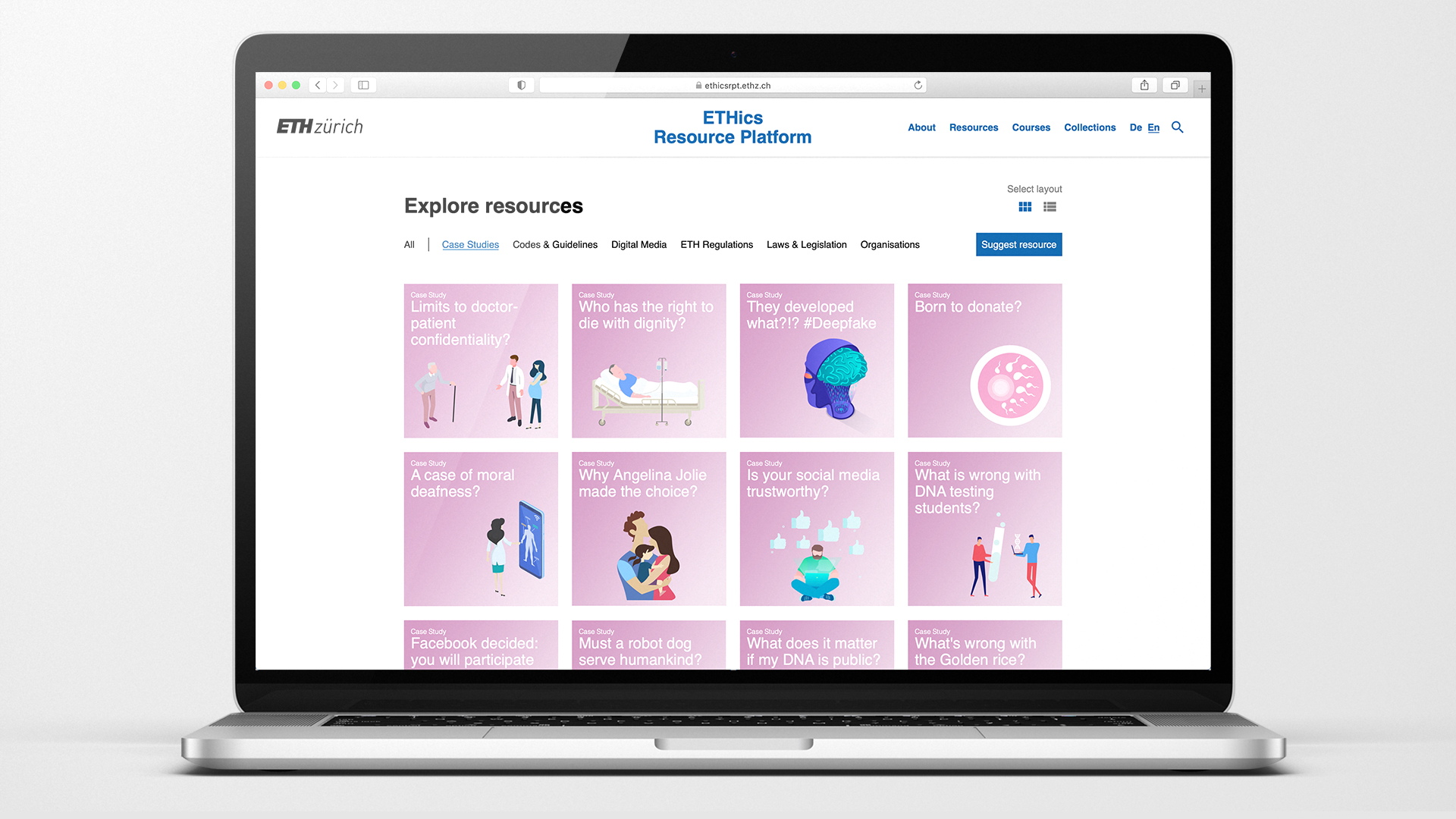
Ethics Toolkit
We developed an ethics toolkit to help Research Ethics Committees (RECs) and researchers reflect on and assess ethical uses of big data. As well, this toolkit provides a means for REC's and researchers to practically implement high-level recommendations and international governance. The toolkit, consisting of two parts as shown below, was developed by Agata Ferretti and Marcello Ienca under the supervision of Effy Vayena. For more details see this project page.
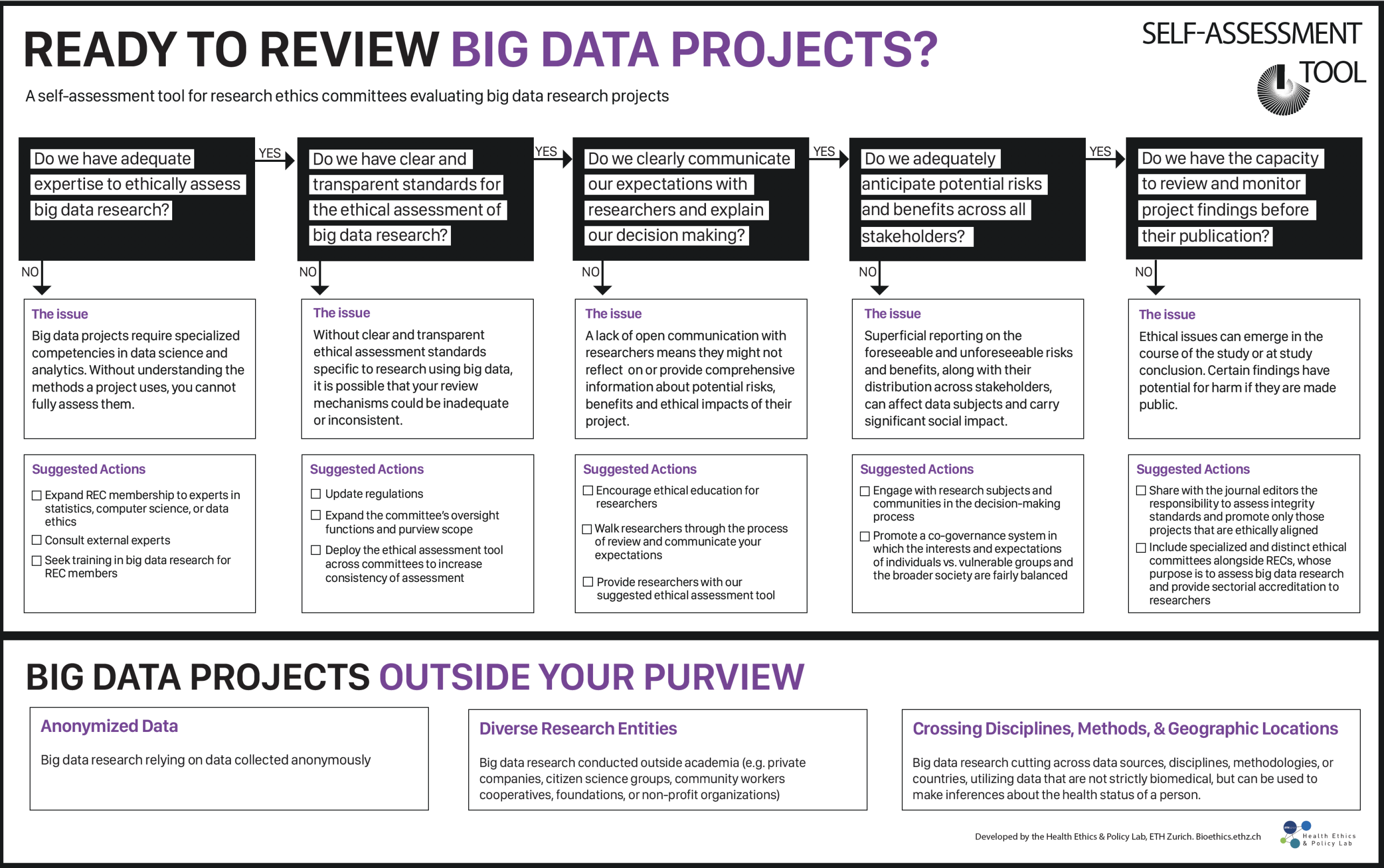
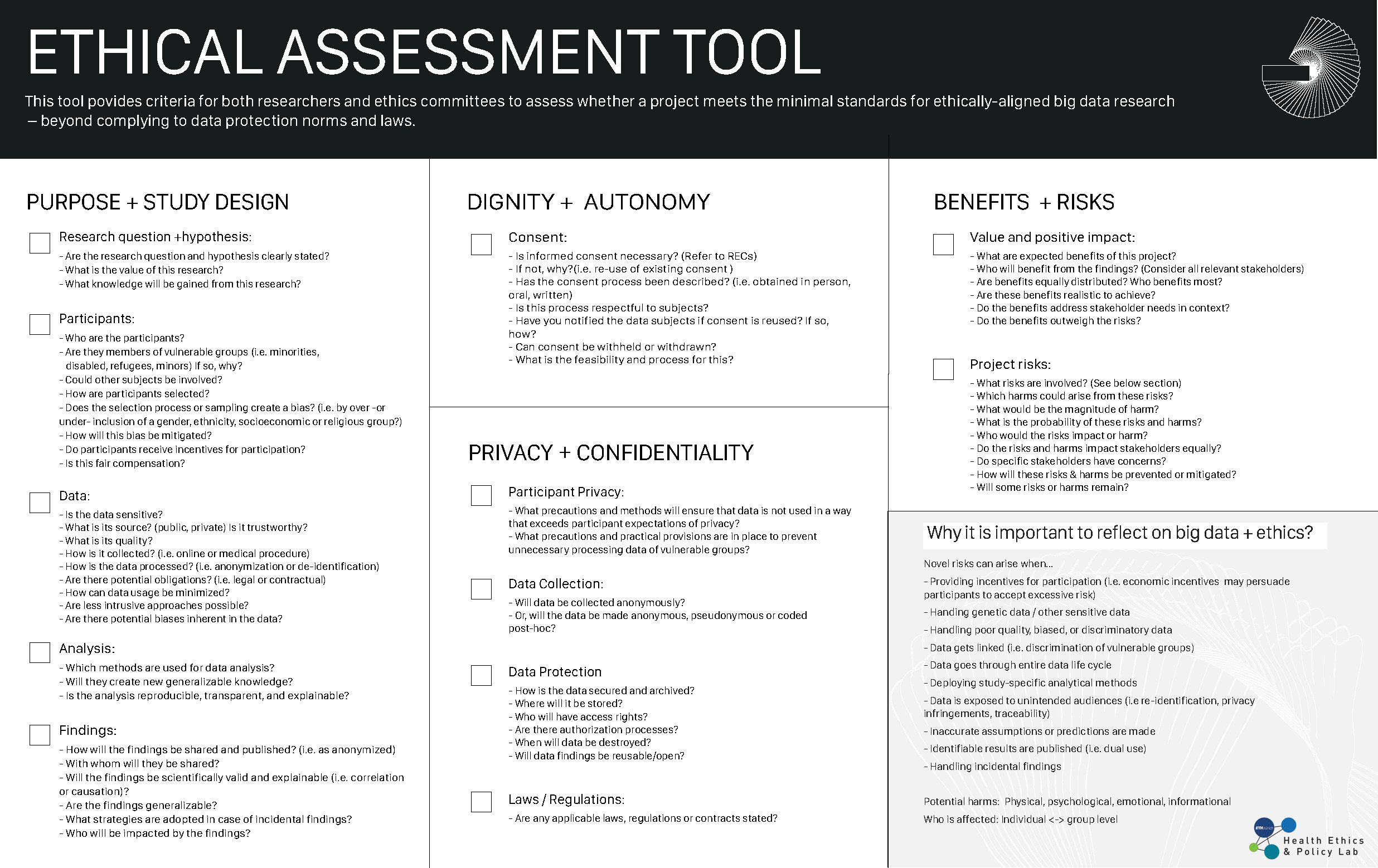
Policy Roadmap - Interactive Dashboard
This comprehensive dashboard offers a curated set of policy recommendations and actionable steps to guide the ethical development and implementation of digital health initiatives, particularly for youth populations in low- and middle-income countries. It is designed for policymakers, regulators, developers, implementers, researchers, and individuals seeking to advance evidence-based digital health policies.
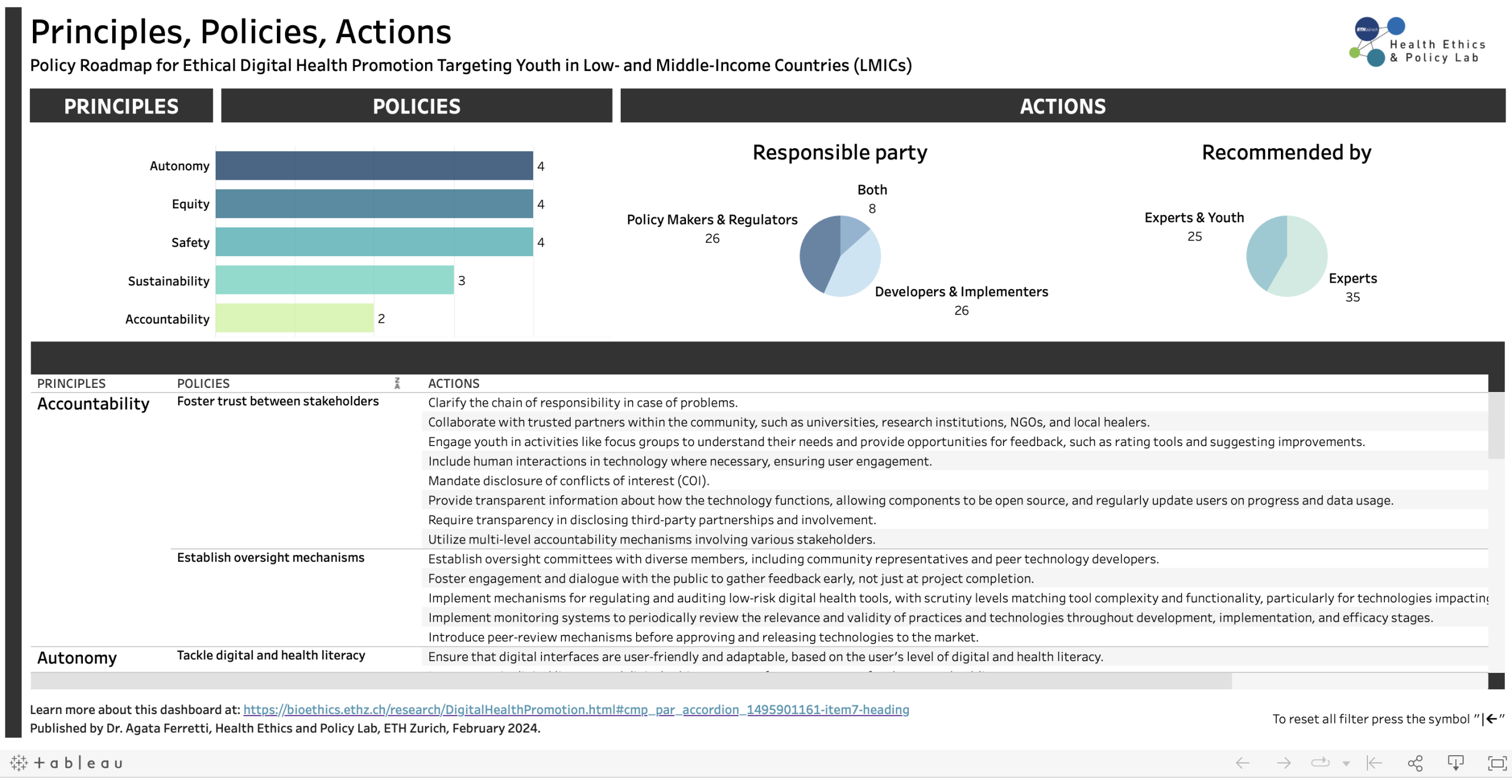
Health Data Ethics Map
We transalted the ethical guidelines of the Swiss Personalized Health Network into an interactive visual and online learning tool. The goal was to make the guideline more accessible and actionable for various health sector actors, and to communicate different responsibilities and rights related to using personal data and human biological material in health data.
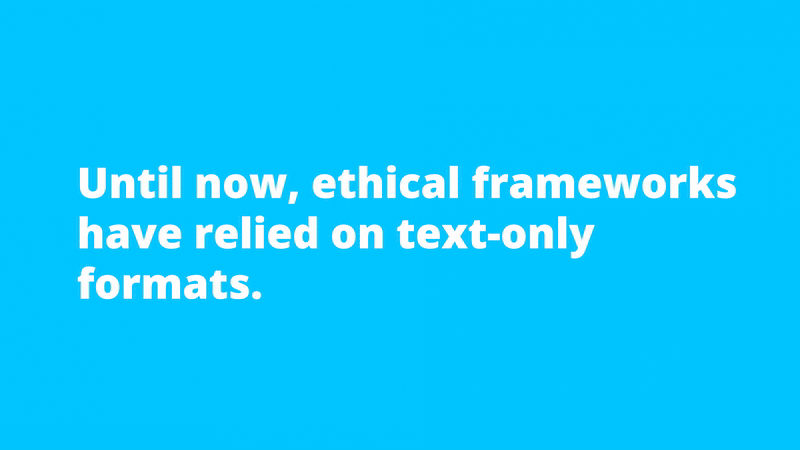
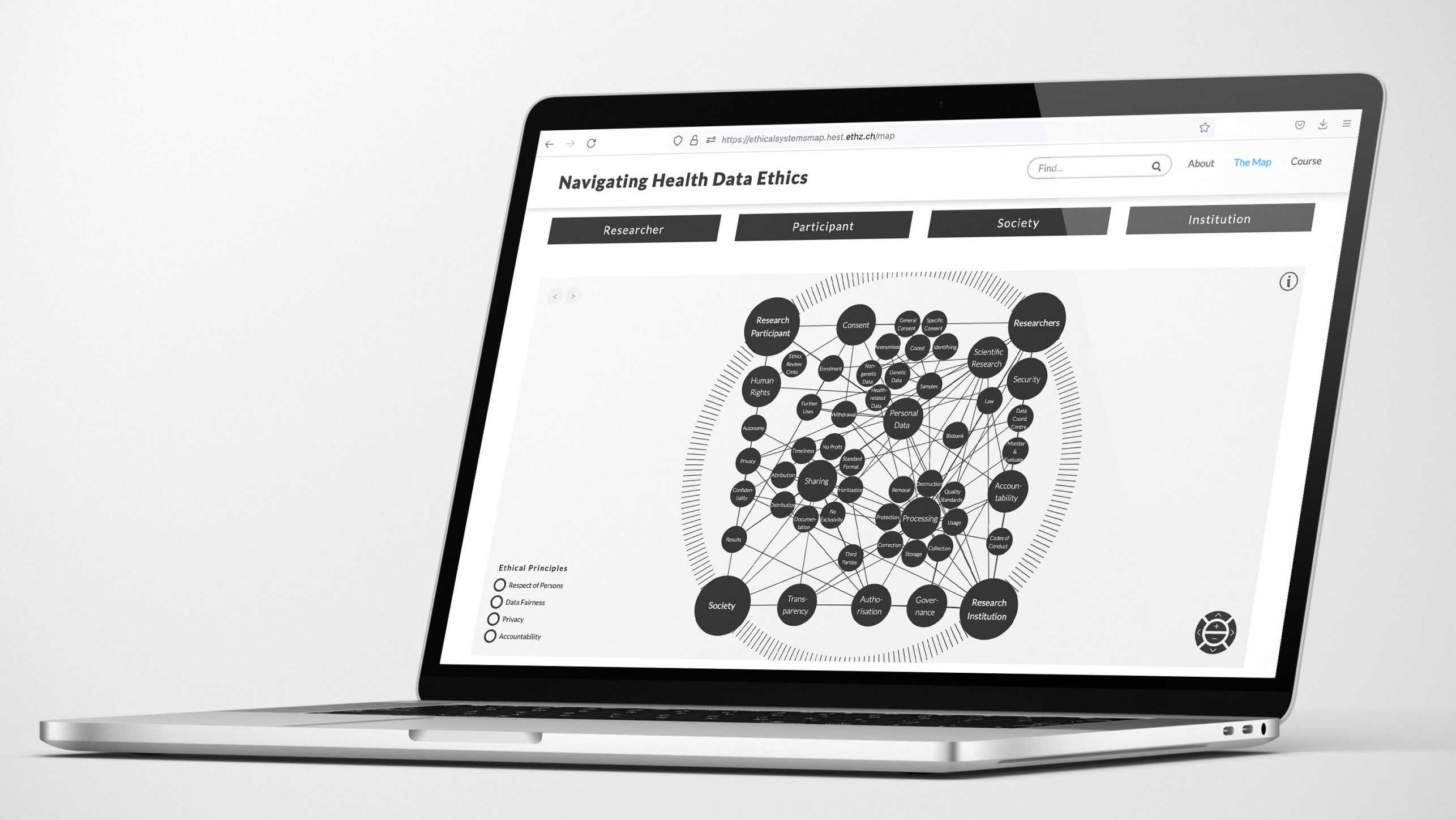
Precise4Q Deliberative dashboard
We developed the Precise4Q Deliberative Dashboard as part of research investigating different stakeholders' expectations and attitudes towards the use of artificial intelligence in clinical care for stroke patients. This Deliberative Dashboard is designed to facilitate the discussion of ethical issues that arise within the project and to cultivate a common language and understanding. In addition, the Deliberative Dashboard also provides consortium partners with a curated list of relevant ethics resources, which are continuously reviewed and updated throughout the course of the project.
